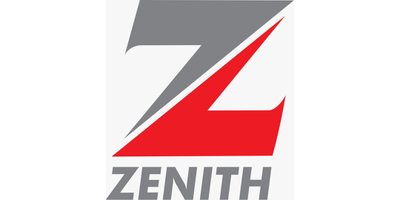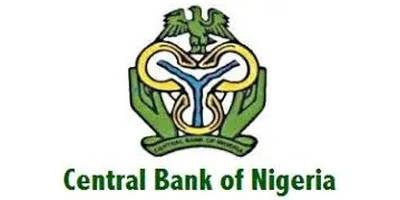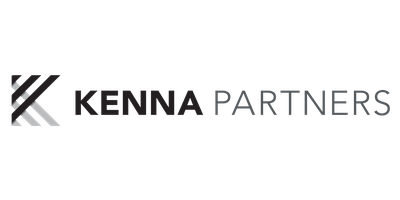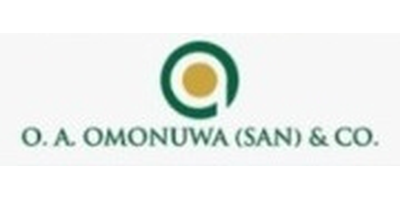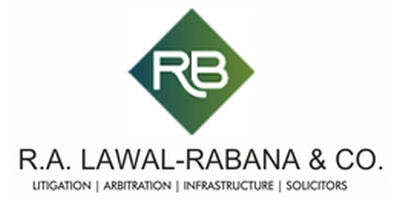I'm really excited to welcome you on board this glue-up platform community created for NICArb 2022 Hybrid Annual Conference Themed: "The Future of Arbitration and ADR in Africa: Developments & Sustainability." We want to make your onboarding experience stress less.
The platform has been created for delegates to interact, socialize and ask questions on Arbitration and ADRs.
STEPS TO ONBOARDING TO THE PLATFORM
You have already been added to the platform, but to have access to the conference contents, you have to do the following;
- Download the App on the Google PlayStore (to download on your mobile or click the glue-up prompt at the bottom of this email);
- Sign up (for those who are yet to create an account) or Sign-in/log in if you already have a glue-up account.
Please feel free to send us an email if you have any questions at any point in time.
We're glad to have you on board.
THANK YOU
Speakers
Agenda
08
00
-
09
00
Registration/ Networking
Registration/ Networking
09
00
-
09
05
Welcome Remarks by Chairman of the Planning Committee
Welcome Remarks by Chairman of the Planning Committee, Sir Uche Val Obi, SAN, FCArb.
09
05
-
09
15
Host's Welcome Address
Host's Welcome Address by Prof. Fabian Ajogwu, SAN, FCArb, OFR, President, Nigerian Institute of Chartered Arbitrators
09
15
-
09
25
Opening Remarks
Opening Remarks
09
25
-
09
45
Keynote Remarks
Keynote Remarks
10
00
-
11
30
Plenary 1: Arbitration, Justice, and the Rule of Law
Focus Area: The link between Arbitration and the twin concepts of Justice and the Rule of Law is becoming more and more pronounced especially in light of the unassailable benefits of Arbitration and ADR; hence the cliché “Justice delayed is Justice denied” readily comes to one’s mind. Also, the recognition and enforcement of Arbitral awards devoid of any clog or unnecessary and unjustifiable oppositions in the light of copious legislation, rules, and judicial authorities speak to the issue of the Rule of Law in most jurisdictions in Africa and Nigeria in particular. This subject will be addressed in-depth at this year’s Conference.
11
30
-
11
45
Break/Networking/Sponsors Video
Break/Networking/Sponsors Video
11
45
-
12
45
Plenary 2: Emerging Technologies and Smart Contracts in Arbitration/ADR
Focus Area: Blockchain Technology is redefining every sphere of human interaction, including the way contracts are documented and disputes are resolved. The use of smart contracts allows anonymous parties to carry out transactions and agreements without the need for traditional intermediaries, legal systems, or external enforcement machinery as we have known them. Arbitrators can now be appointed by a blockchain-based dispute resolution platform. Parties can be in different countries and the award is generated on the blockchain while it is circulated to the parties. The conference will explore the dynamics of blockchain technologies and how they can be situated within the context of existing limitations of access to technology on the African continent. The conference will also examine how Arbitrators can gather more skills so that they are not left behind by these emerging technologies.
12
45
-
13
45
Plenary 3: Dispute Resolution Board and Adjudication, Offshoot of Arbitration
Focus Areas: In recent times, Dispute Adjudication Boards have evolved into an effective tool for resolving disputes, particularly in construction and infrastructural projects. Its fast-paced global popularity within the construction industry is primarily hinged on its low-cost value, vis-a-vis real-time detection of potential disputes, and the deployment of mechanisms to avoid or resolve these issues early on in the lifespan of a project. The widespread popularity of the Dispute Adjudication Board is evident in the development of standard dispute board rules by reputable global institutes such as the International Chamber of Commerce (ICC), International Federation of Consulting Engineers (FIDIC), American Arbitration Association (AAA), World Bank, etc. Its role in the dispute resolution arena has undoubtedly led to a considerable reduction in the number of construction disputes that are referred to Arbitration. Can the Dispute Adjudication Board rightly be referred to as an offshoot of Arbitration or is it more appropriate to view it as the first step in a multi-step dispute resolution process? This question will be considered extensively at the Conference.
13
45
-
14
45
Lunch
Lunch
14
45
-
15
45
Plenary 4: The Impact of Arbitration in Cryptocurrency and Fintech-related Disputes
Focus Area: Investments in Cryptocurrencies and other blockchain-related technologies have grown exponentially since the COVID-19 epidemic. The traditional financial sector has also experienced disruption aided by technology. Investment and lending activities have witnessed a great shift from traditional bricks and mortar to online platforms. With the resulting increasing interest, along with the traditional challenges of commercial transactions, there has also been a myriad of concerns such as cyber-security issues and privacy concerns. Since such transactions take place online across multiple jurisdictions, dispute resolution is even more challenging. The Conference aims to explore how alternative dispute resolution mechanisms such as Arbitration can be used as potent viable tools for the resolution of disputes in such transactions.
15
45
-
16
45
Plenary 5: Digital Tools and Green Arbitration
Focus Area: Significant Carbon Footprints of traditional Arbitration proceedings are gradually giving way to the use of new technologies to reduce the carbon emissions caused by large paper works, international travels associated with in-person meetings and hearings. These new technologies which include machine learning, blockchain, and text-mining have been incorporated into the legal process of Arbitration in some western countries. So far the interaction between the new technologies and Arbitration has been mutually beneficial in diverse ways ranging from reduced costs of conducting Arbitral proceedings, to increased efficiency, and better time utilization, amongst others. In-person meetings and hearings have now been replaced by virtual meetings. By this unassailable truth, it is expected that the use of digital tools can translate Arbitration proceedings from the green to greener. Indeed, this is a very appealing prospect for Arbitration stakeholders.
16
45
-
17
15
NICArb Young Arbitrators Debate – Prize Giving
NICArb Young Arbitrators Debate – Prize Giving
17
15
-
19
00
Cocktail Reception
Cocktail Reception
08
00
-
09
00
Welcome Back / Networking
Welcome Back / Networking
09
15
-
09
25
Opening Remarks
Opening Remarks
09
25
-
09
45
Keynote Address Day 2
Keynote Address Day 2
09
45
-
10
45
Plenary 1: Innovative Solutions in Arbitration: Time/Cost Reduction and Expedited Processes
Focus Area: Arbitration was at some point reputed and represented as a cost-effective, time-efficient and flexible dispute resolution process, but at the moment Arbitration appears to be facing increasing criticism for its substantial costs and time in dispute resolution. The rising cost and the lengthy time frame involved in conducting Arbitration proceedings serve to undermine the entire arbitration process and render it less attractive to parties. This Conference will address questions such as: What innovative strategies or tools can a tribunal employ to avoid unnecessary expenses and delays in Arbitration proceedings? Are there any difficulties, in practical terms, that a tribunal and the parties thereto may encounter in ensuring savings in time and costs? While there has been an upsurge in novel devices, it is expected that the benefits of these should be evident in the practice of Arbitration.
10
45
-
11
00
Break/Photographs
Break/Photographs
11
00
-
12
00
Plenary 2: Closing the Gaps: Arbitration Practice within Anglophone and Francophone Jurisdictions
Focus Area: Arbitration and ADR practice is no doubt a global phenomenon with distinct and unique features that cut across all jurisdictions regardless of differences in culture, language, and legal systems. However, with particular reference to and focus on the African continent, are there gaps in the practice of Arbitration and ADR, given the dichotomy of language and culture? If there are, what are the concrete measures that can be taken to address the gaps? This discourse would be adequately ventilated at this year’s Conference.
12
00
-
13
00
Lunch
Lunch
13
00
-
14
00
Plenary 3: International Investment Arbitration: Transparency versus the Rule of Confidentiality
Focus Area: When it comes to cross-border disputes, confidentiality is considered an advantage of International Arbitration, particularly international investment arbitration. The resolution of cross-border disputes has been shown to significantly impact the international economy, public policy, and international relations, therefore necessitating transparency of the Arbitral proceedings. Transparency of the proceedings needs to be balanced with the principle of confidentiality that is sacrosanct to Arbitration, to promote the integrity and legitimacy of a private dispute resolution system with wide-ranging public implications. How will a tribunal maintain the balance between confidentiality and transparency? What factors need to be taken into consideration in deciding the level of transparency versus confidentiality in an International Investment Arbitral Proceeding? These are some of the questions that will be extensively discussed by the panel during the Conference.
14
00
-
15
15
Plenary 4: Nigeria’s New Arbitration and Mediation Act: Implication for Dispute Settlement in Nigeria / Third-Party Funding and its Impact on Arbitration
Focus Area: On the 10th of May 2022, the Nigerian Senate passed a Bill to enact the Arbitration and Mediation Act, 2022 to provide for a unified legal framework for the settlement of commercial disputes. The said Act is to repeal the Arbitration and Conciliation Act, Cap A18, Laws of the Federation of Nigeria 2004, modelled after the UNCITRAL MODEL Law of 1985. The new piece of legislation recognized and enforced the application of the New York Convention on Foreign Arbitral Awards to any award made in Nigeria or any contracting state, arising out of International Commercial Arbitration. In the same vein, it recognizes and applies the Singapore Convention on the International Settlement Agreements resulting from Mediation. This amendment, it is believed, will cause a significant change in the Nigerian Arbitration landscape, taking into cognizance Nigeria's continued role and tremendous potential in Africa. The Bill is gladly welcomed by all and its timing is apt.
Simultaneously, the recent passage of the Arbitration and Mediation Act, 2022 is set to, inter alia, introduce the concept of third-party funding to the legal framework of arbitration in Nigeria. This is a practice in which an independent commercial funder, without any previous connection to the dispute, provides a party with either partial or full funding for legal fees and expenses connected to the arbitration in return for a portion of, or the full amount recovered by that party. This is expected to improve the attractiveness of Nigeria as an Arbitration venue of choice. The conference will examine the provisions of the law and its effect on current disclosure practices.
15
15
-
16
00
Community
Connect with 432 people attending this event











